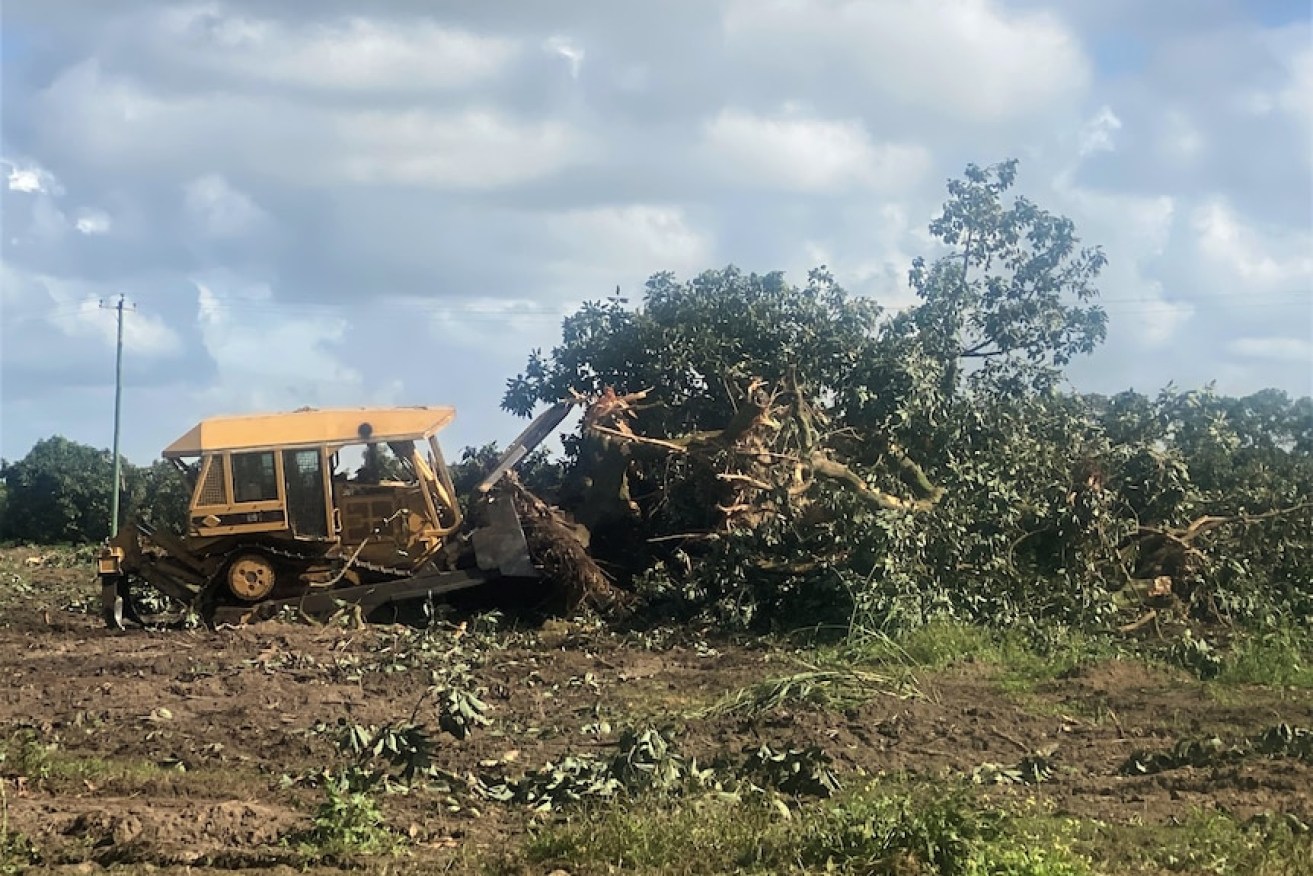Smashed avos: Farmers not toast yet as growers urged to calm the farm
Avocados Australia is adamant its growers around Bundaberg are keeping their cool amid reports trees are being uprooted to stave off a water shortage calamity.


Some Bundaberg farmers are reportedly razing their crops because of water shortages (Photo: ABC)
Childers avocado and macadamia nut grower Eric Carney says he’s seen no evidence that farmers in his district are bulldozing their trees en masse in a bid to conserve water.
A director of Avocados Australia, Carney says he’s seen plenty of pruning, tree canopy management and irrigation efficiency, but little in the way of farmers destroying their orchards.
“The last three years have been very dry, and growers have taken the normal steps to manage their trees and operations in such a way to be more water efficient,” Carney said.
“I don’t think we’re going to see anything different this year, although if we don’t get good rain before March next year, we could be in real trouble.”
Tension among district farmers has again flared following an announcement by state government-owned water provider Sunwater that irrigators would only receive 22 per cent of their allocation from Paradise Dam from July 1.
The ABC has reported that some growers have started removing trees on the back of Sunwater’s new allocation, which plummeted from 100 per cent last year and nearly 70 per cent lower than the 90 per cent average over the last decade.
A spokesman for Bundaberg Regional Council said they had no knowledge of the widespread tree removal, while Avocados Australia CEO John Tyas said there could be other reasons why trees were being destroyed.
“There are a lot of old trees in the region now and some growers may be considering rejuvenating some areas anyway by removing unproductive trees,” he said.
Tyas said Bundaberg-Childers was in Australia’s top three avocado production zones, which along with other growing regions had produced a 65 per cent increase in harvested fruit this year – leading to an over-supply on the domestic market and subsequent price falls at the cash register.
Estimates earlier this year put allocations as low as 14 per cent, before modest in-flows over summer and early autumn saw allocations revised upwards ahead of the new water year that started this week.
“It could have been much worse,” Carney said. “Twenty-two per cent is something of a reprieve and there are forecasts of further rain over winter.”
A statement from Sunwater blamed the water shortfall on drought, while holding out the promise allocations would increase should the district receive higher in-flows over the months ahead.
“Over the last 24 months the Burnett has seen some of the lowest rainfall on record for the region,” the statement said.
“Across the catchment, prevailing dry conditions have impacted all Sunwater water storages.”
The new allocation has given local producer group Bundaberg Fruit and Vegetable Growers and AgForce’s local representative Tom Marland a fresh opportunity to lash the Palaszczuk Government in a long-running campaign to protest its controversial Paradise Dam reconstruction.
The works, which were started after reports from engineers in 2019 assessed the dam at risk of failing, lowered the dam wall to stabilise the structure, while reducing overall capacity to 42 per cent.
Marland, a local lawyer, is leading a class action against the state government over the works, citing billions in damages to the local economy.












